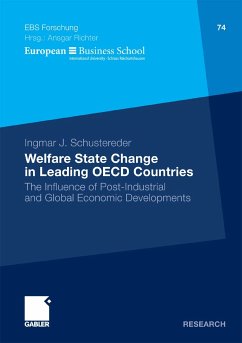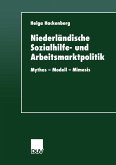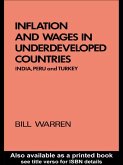For decades, issues regarding the sustainability of the welfare state have been an important agenda in both academic and public debate. The existing literature primarily points out to economic globalization and post industrial developments as drivers behind recent welfare state change. Ingmar J. Schustereder investigates the relative influence of these factors and examines to what extent different national systems of social protection have preserved their core institutional features over time. He applies a combination of econometric and qualitative techniques using data of 17 leading OECD countries from 1975 to 2005.
Dieser Download kann aus rechtlichen Gründen nur mit Rechnungsadresse in A, B, BG, CY, CZ, D, DK, EW, E, FIN, F, GR, HR, H, IRL, I, LT, L, LR, M, NL, PL, P, R, S, SLO, SK ausgeliefert werden.









